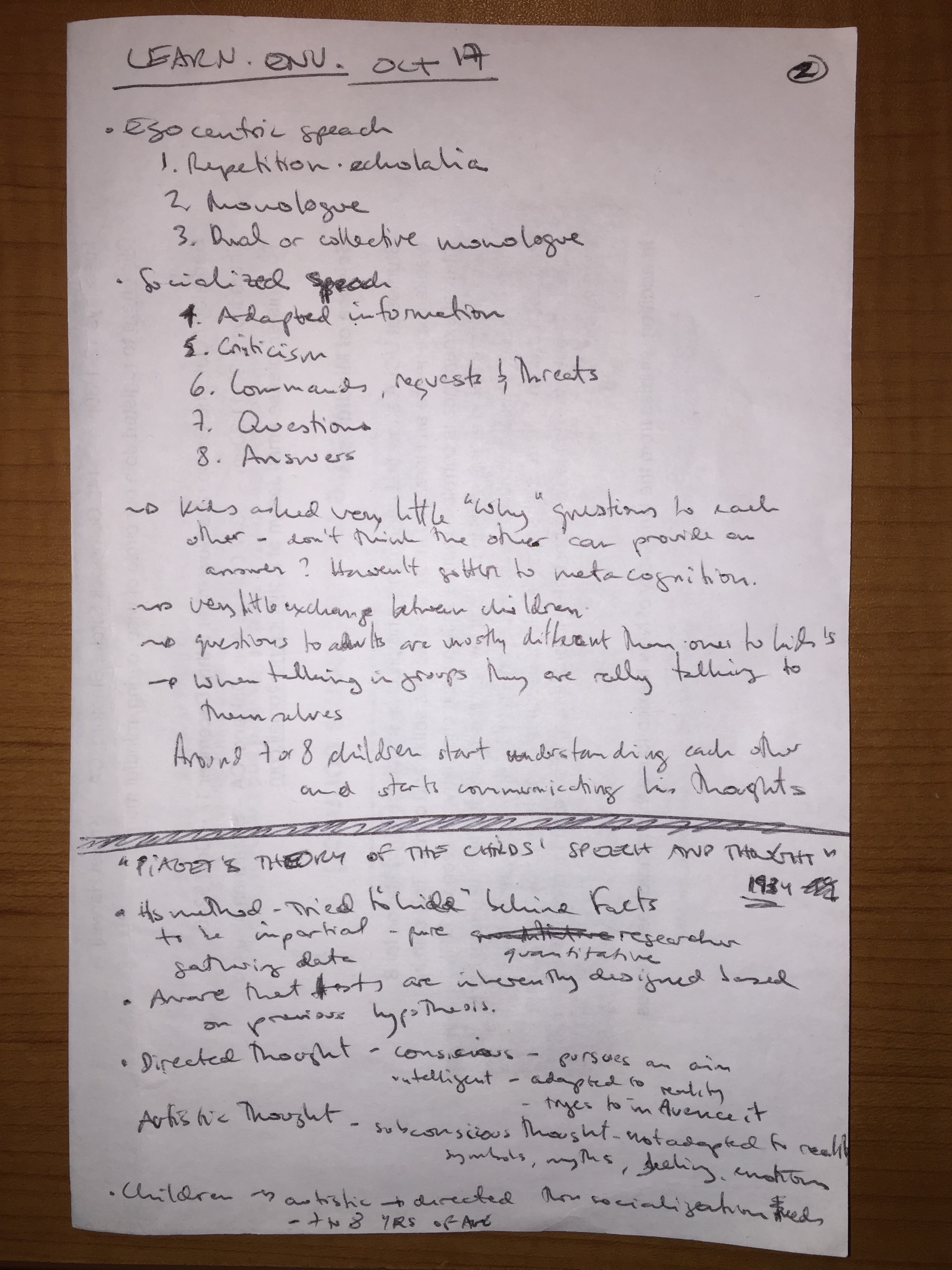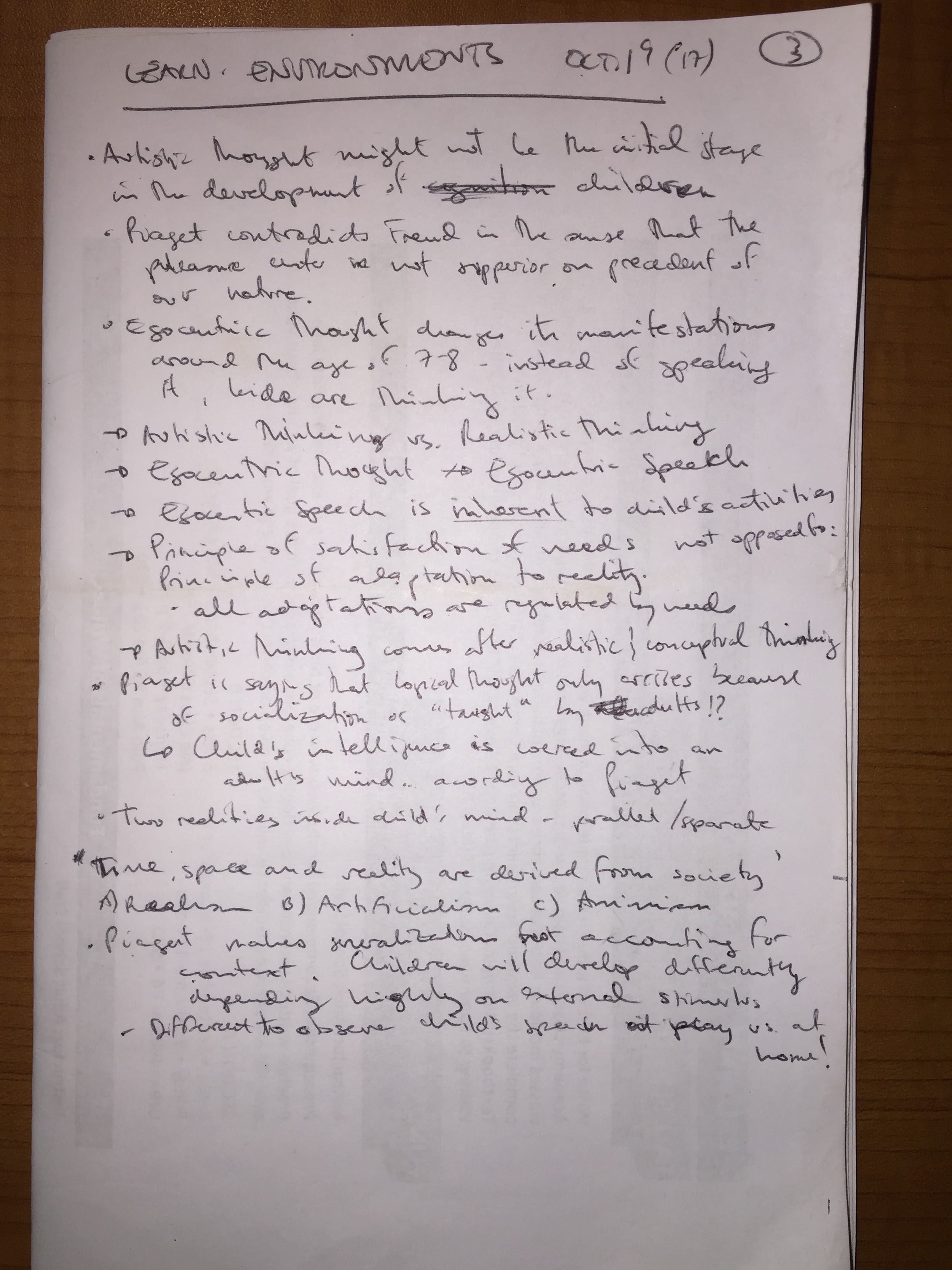Reading:
LEARNING BY SELF-REGULATION AND SOCIALLY SCAFFOLDED ACTIVITY
Jean Piaget (1926/1951). The Language and Thought of the Child. London: Routledge & Kegan Paul(Ch. 1: The functions of language in two children of six. pp. 1-49.
Lev Vygotsky (1934/1986). Thought and Language. Cambridge, MA: MIT Press. (Ch. 2: Piaget’s theory of child language and thought, 12-57.)
Notes:
Response:
“It was Piaget himself who clearly demonstrated that the logic of action precedes the logic of thought, and yet he insists that thinking is separate from reality.” Vygotsky pg. 53
It was very interesting to read Piaget’s own research followed by a critical analysis of it. From Piaget’s work, I was intrigued by how his methodical counting and categorization of behavior lead to such profound observations on the thought process of children. The separation between egocentric and socialized speech makes a lot of sense and resounds deeply since we seem to maintain these traces in our own thoughts as we grow. I wondered though how much the environment would affect the development of thought – would children from other cultures have a different pattern or speed in evolving logical thought?
I also found intriguing that the children knew not to ask each other ‘why’ or ‘how’ questions – these were directed to adults exclusively. So it struck me as odd when he generalized that children were apparently unaware of each other, or did not care if another child was not paying attention. It seems strange that he was able to reach this conclusion observing only the children at play, when a more casual and less logical behavior is expected. Also, the notion that if left alone a child would never develop logic also seems strange to me. I this is that case, who started teaching logical thought?
These impressions were confirmed to have foundation on the second reading where the author points to some contradictions in Piaget’s work. Although extremely valuable, sound and indoubtedly influential, it felt like fine adjustments or fewer generalizations could be made in his work. The main points were questioning this harsh separation between the mind and reality – which comes first or which dominates the other – or not. The point being that inner thought and the environment are intertwined, interdependent and cannot be evaluated if taken as separate and parallel phenomena.

